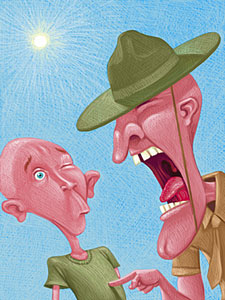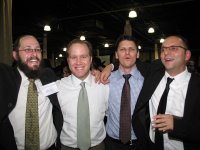
You met him too then, under those most tragic circumstances. Before it happened, not many had heard of him; afterwards, who hadn’t?
He was a foreigner, whose name most people probably struggled to pronounce. His early life, in his home country, had been difficult. Even after he moved to the liberal United States, he part of an ethic minority.
His quiet, reflective character belied the difficulties that he had experienced. At a young age, he had already tasted discrimination; even suffered personally because of it. Over time he had experienced persecution and even physical abuse.
I guess it wouldn’t have been surprising for someone who had been through his life-experiences to be bitter, or even angry at the world. If he had dark thoughts, his therapist would likely have called them “natural”, considering his circumstances.
Considering the relevance of that Monday in his life, the negative images must have been magnified. Turbulent emotions likely cascaded through his mind as he walked through the hallways of Virginia Tech campus on that cold morning. It was the perfect day for his emotions to ignite.
It happened shortly after 9:00 a.m. In one notorious moment, he was blasted from near-obscurity to the world’s front pages.
His face will remain before our eyes, his actions etched in our conscience.
In an instant he became a hero; the man who placed his body between a senseless gunman and a classroom full of students.
Having endured anti-Semitic Romania, labour camps and Communist discrimination, Liviu Librescu had every excuse to be angry at the world. As a child, he saw his father torn away by the Nazis, and as an adult, the Communists robbed him of his career. If anyone should have felt vengeful, he should have. He chose not to be.
Monday was Yom HaShoah (Holocaust Memorial Day), a day that represented every seminal trauma of his life. It became the day that crystallized his response to that horror.
Liviu Librescu, following the legacy of tens of thousands before him, chose how to respond to life’s circumstances. Like his predecessors who emerged from the ravages of Crusade, the Auto Da Fé of Spain or the Gas Chambers, Librescu understood that a Jew is not shaped by life, but shapes life.
Years past retirement age, he remained committed to teaching, to sharing and adding value to the lives of others.
Our society is unnecessarily tolerant of people’s willingness to blame circumstances for their deviant behaviour.
Unlike his killer’s “You made me do this”, Librescu refused to surrender to “circumstances”. He understood the greatest gift of being human- choice.
He chose to live.
Librescu and his murderer stood separated by four centimeters of door; and by attitudes that are light-years apart.
I stand proud in the knowledge that I belong to the People of Liviu Librescu.
May his memory be a blessing- and an eternal inspiration to us all.
(This article was inspired by Rabbi Eitan Ash of Chabad House Shul, Savoy)












